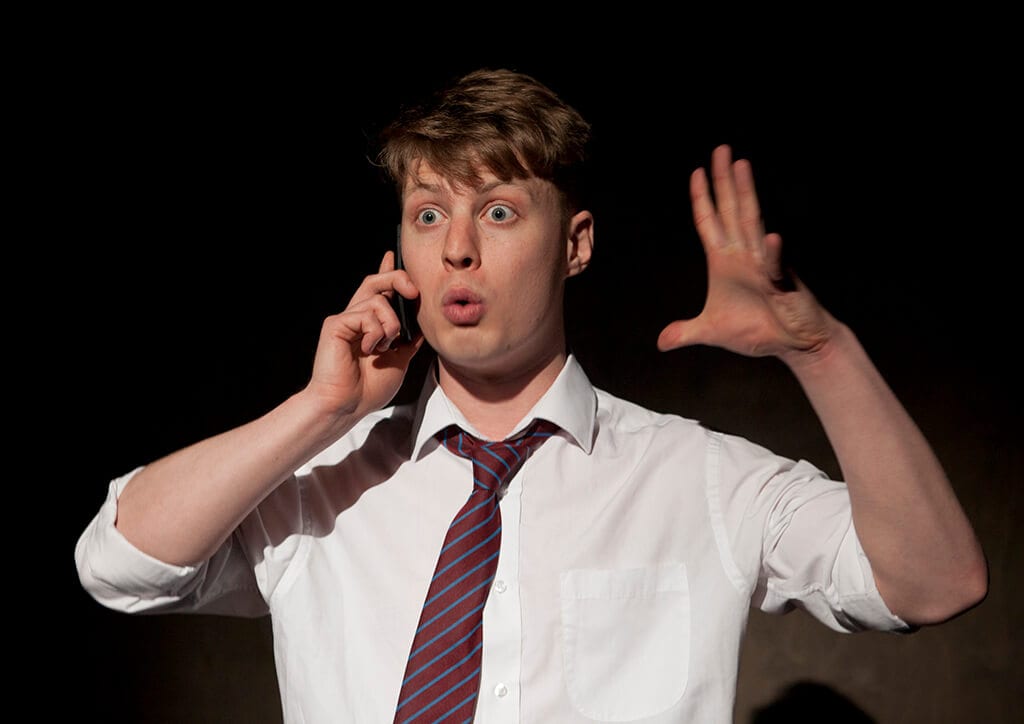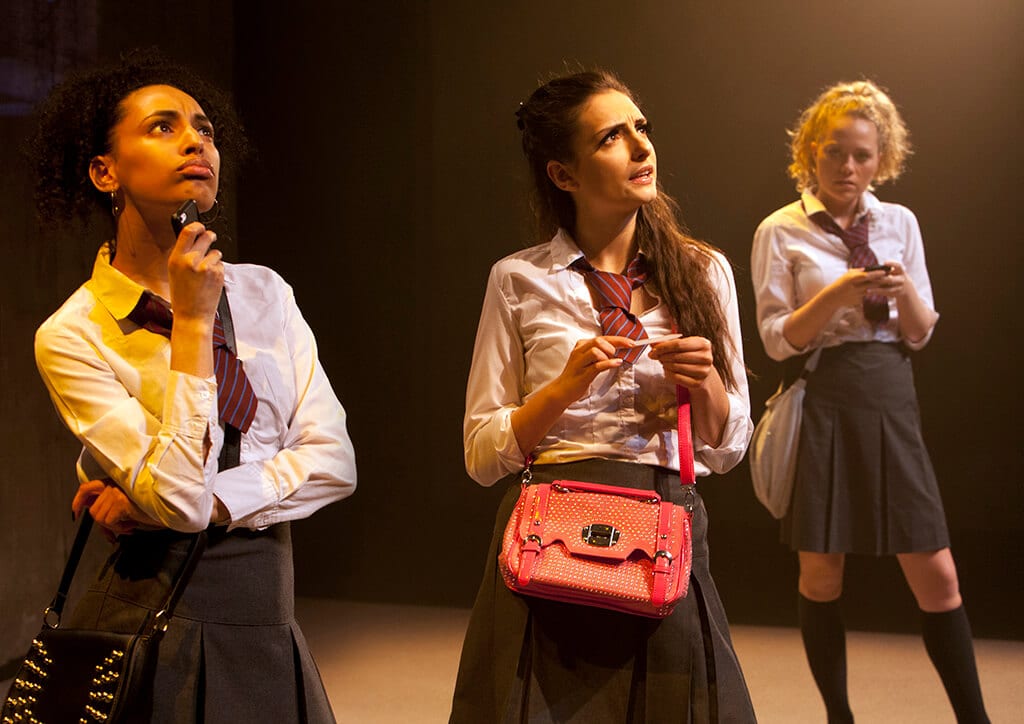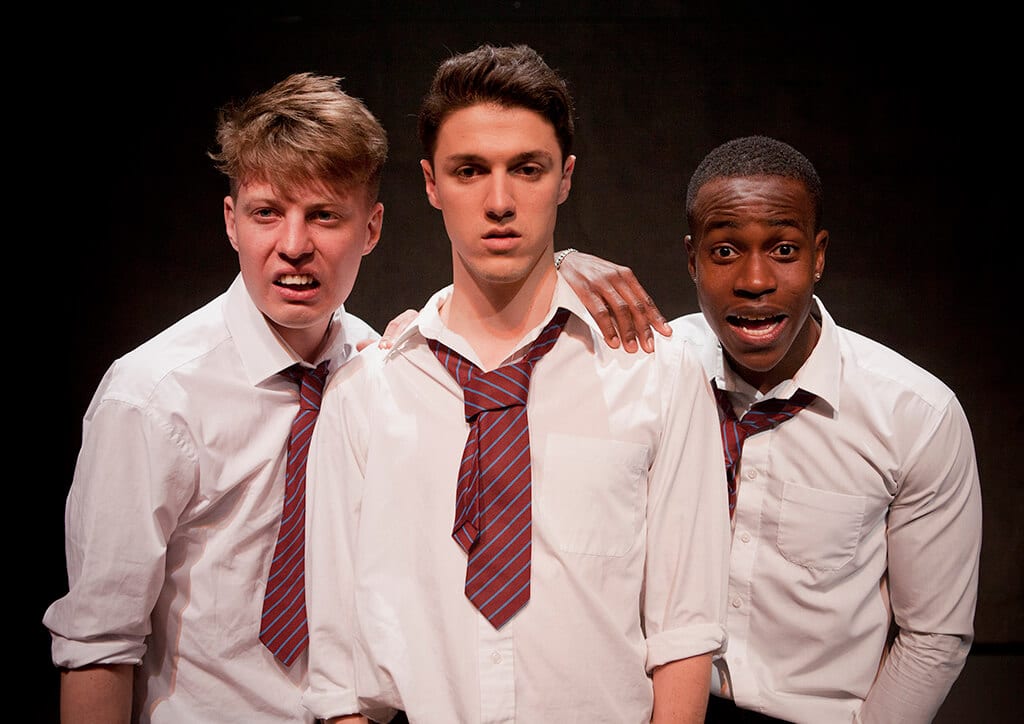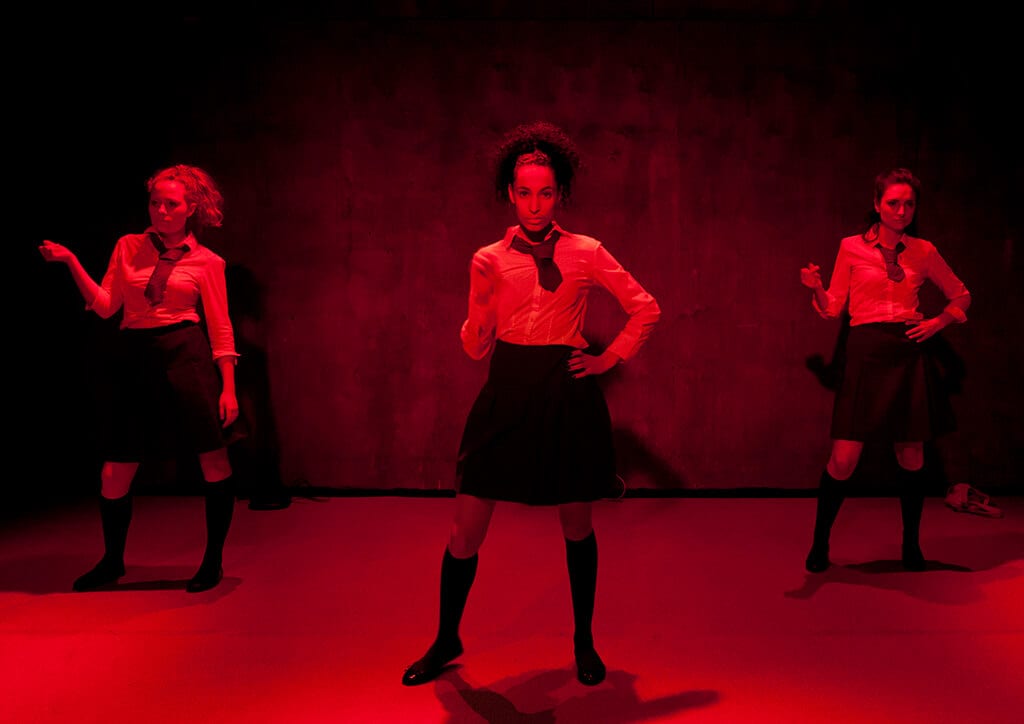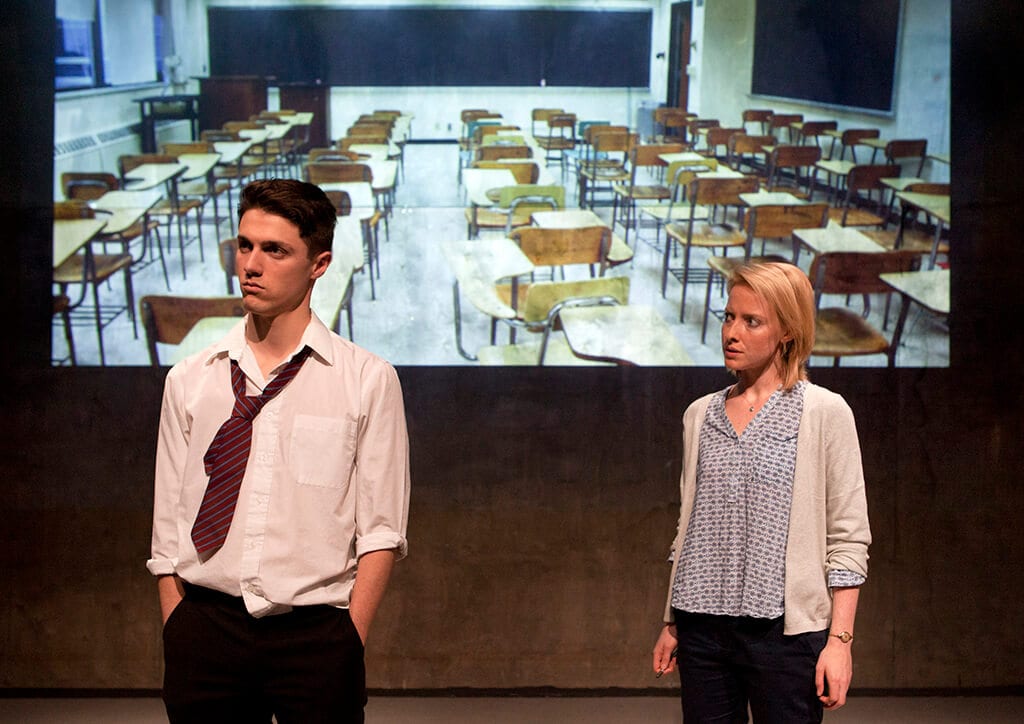Monica Lewinsky recently wrote in the Guardian that the fame she achieved in the 90s has stuck to her “like tar”, and given what she’s famous for, she may now wish she’d chosen another metaphor. Fast forward 20 years, and the problem isn’t so much the mainstream media as social media, making public for all eternity things you might wish were private and instantly forgotten. How to negotiate the coming of age and burgeoning sexuality in such a minefield, especially given the double standard that sees boys termed “studs” while girls are “sluts” – or, as I now learn, “skets” – for exactly the same behaviour?
Maya Sondhi’s play gives us six 14 year olds, three boys and three girls, at an unnamed comprehensive, presided over by the hapless “Miss” who can hardly keep up with the changes in slang, let alone the fact that her charges are already sexually active. Full of insecurities, Daisy is flattered when JC tells her she’s beautiful and asks her to send him a nude picture, little suspecting that his friends will immediately see it too. Before long that’s the least of her worries as the picture does the rounds on WhatsApp, and she’s ostracised by her closest friends Emily and Tamika. But when Emily hears about how “Fat Katie” is making some money during morning break, she sees a chance to pay for more fake eyelashes from China – where they’re cheaper because “people don’t have them there” – and before long she’s a YouTube sensation herself.
Sondhi’s concern is as much about how boys and girls behave towards each other, the former goading each other to greater heights of misogyny and dismissing as “gay” anyone not willing to go along with it, the latter instantly turning on each other in an effort to prevent the same shame falling on themselves.
It’s an admirable subject for a play, which good intentions no doubt helped it raise funding on Kickstarter, but sometimes it feels a little like a staged lecture. At only an hour long, Sondhi could afford to take some time to establish the characters and give them some sort of context as rounded human beings before introducing the theme she wants to write about. She’s not helped by Prav MJ’s direction, which never quite decides whether the characters are interacting realistically with each other or just standing in a line and speaking to us. I’m also not sure of the point of the scene where the three girls go to a street dance class – to make us, the audience, feel complicit in objectifying them? And Sondhi really needs to give the play a proper ending – I genuinely assumed a fuse had blown when the lights suddenly went out for no apparent reason.
The acting is remarkably good from such young performers, though to my mind they sometimes sound implausibly posh for people whose vocabulary is so relentlessly urban. Tessie Orange-Turner as Tamika was best among the girls, a volcano of bravado to mask her real feelings, Dave Perry as Adam among the boys, though I wish the suggestion that he was following his father into some sort of Britain First/EDL crowd was developed further. Anna O’Grady is excellent as the bemused “Miss”, thinking herself scarcely older than her pupils until one of them asks why she dresses like the pictures in her history books.

